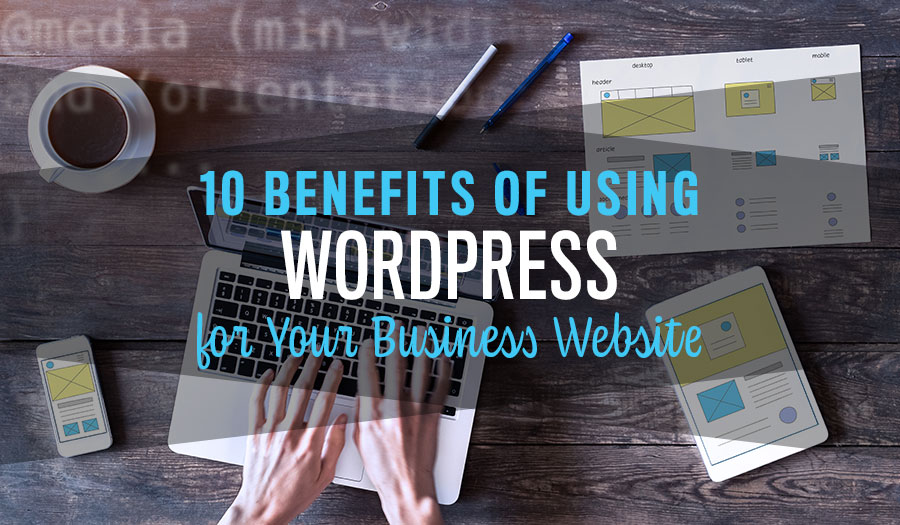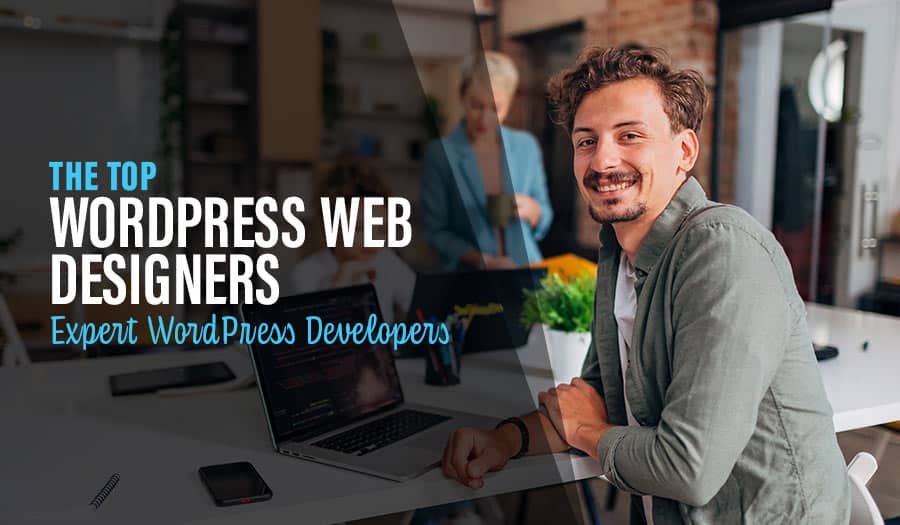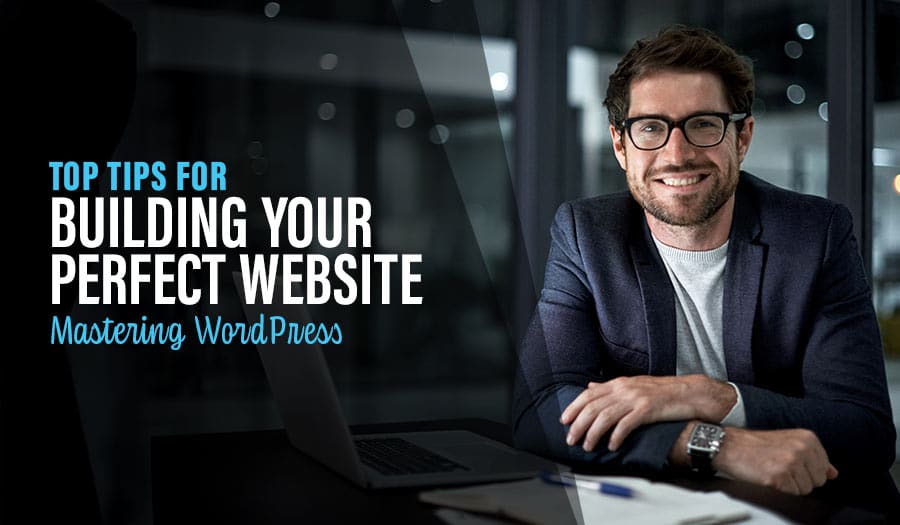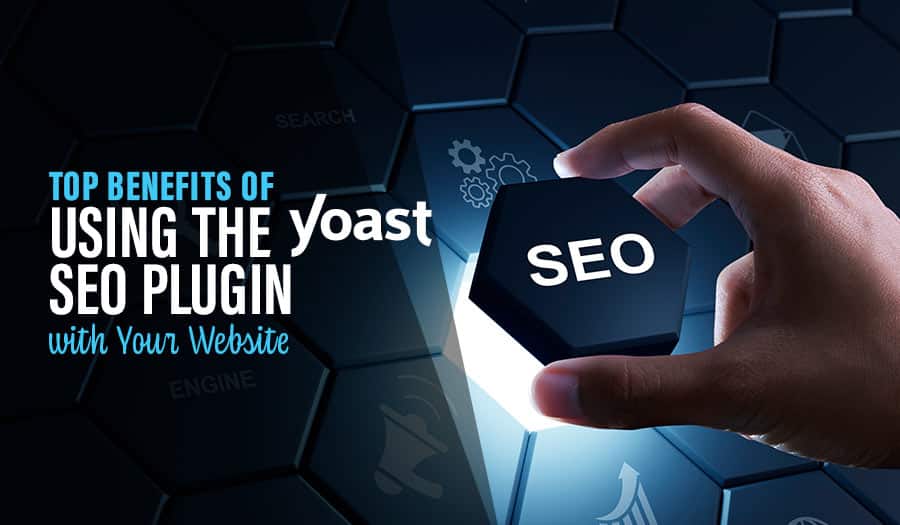WordPress is the most popular blogging and content management system (CMS) in the world, and for many good reasons. It’s an especially appealing choice for businesses that want to establish a strong presence and create an influential website to reach their audience. At the same time, you have many choices for building a business website. It can be challenging to sort through your options and find the best solution. Let’s look at 10 Benefits of Using WordPress for Your Business Website.
Here are some of the top reasons, so many businesses end up building their sites with WordPress.
10 Benefits of Using WordPress for Your Business Website
- Free to Install
- Newbie-Friendly
- You Can Manage It From Anywhere
- Easy to Customise Your Site
- WP is Made for Blogging
- Good for Search Engine Optimisation (SEO)
- Easy to Keep Your Website Updated
- Flexible for Multiple Users and Designers
- Extremely Scalable
- Perfect for E-Commerce
1. Free to Install
WordPress is an open-source platform; you can install it using software supplied by all major web hosting services. In fact, you can install as many WordPress sites as you want, though you’ll probably want to start with one. The software is free, but you can also find many free themes and plugins to help you customise your site.
2. Newbie-Friendly
You don’t need coding experience or any type of technical expertise to start using WordPress. There are many features that are made for more experienced users. However, it’s also suitable for beginners. You can start designing your site and adding content minutes after you install it. The dashboard is quite intuitive, and it’s easy to start a new post or page, add a theme, choose categories for your posts, and take lots of other actions. The user-friendly aspect of WordPress is attractive even if you have specialists handling many tasks. As a business owner, for example, you may want to add or edit a blog post without having to take the trouble of calling your web designer. With WordPress, you can easily do this.
3. You Can Manage It From Anywhere
One of the convenient features of WordPress is that it’s completely browser-based and can be managed from any device or location. It’s a good choice for modern businesses that may have employers, agencies, or freelancers operating from different locations and using different devices. WordPress is an open-source platform that’s universally accessible.
4. Easy to Customise Your Site
Because WordPress is free to install, some beginners assume that this means it’s a fairly generic platform. The fact is, there’s no limit to the ways you can customise your WP sites.
- Themes. The starting point for every site is the theme. When you first install WordPress, you start with a default theme. You don’t have to stick with this, though. You have a vast choice of both free and paid themes to start with. More themes are created all the time, so you’ll never run out of choices. You can even have your own custom theme designed if you prefer.
- Header and background images. You can add your own images with any theme. There’s also a way to add a favicon, which can be your logo. This is an image that will appear along with your website title in browsers, making your site more recognisable to visitors.
- Fonts and colours. Along with the many available fonts you can add. There are plugins that give you access to custom fonts.
- Widgets. These simple tools can be used to add various functionalities to your site. Popular widgets include recent posts, Google Maps, Authors, YouTube Channel Gallery, Testimonials, Quick Chat, and many others.
- Plugins. Plugins are really at the heart of WP, giving you endless ways to add features and customisations. There are thousands of free plugins and many paid ones as well. Plugins can do all sorts of things, such as enhancing security, optimising your images, improving SEO, and countless other tasks.
5. WP is Made for Blogging
Although WordPress is more than a blogging site (it’s a full-fledged CMS), the platform was originally designed with bloggers in mind. While you can start a blog on any website, WordPress includes many tools that simplify the process and help you optimise your content for both visitors and search engines. Blogging is one of the most beneficial actions you can take to generate traffic and build credibility for your website and business. WordPress is one of the most user-friendly platforms for creating and managing your blog.
You can create new posts from the dashboard and choose categories and keywords for each. It’s also easy to schedule your posts, go back and edit older ones, add media such as images and videos, and much more. The blogging dashboard is also convenient if you have multiple users contributing content. Anyone listed as a user can log on and add or edit posts. Many plugins can enhance your blogging capabilities. For example, there are plugins for social sharing, image galleries, adding comment sections, limiting spam, and lots of others.
6. Good for Search Engine Optimisation (SEO)
The whole point of building a website is so your customers and future customers can find you. While you can attract visitors in many ways, including advertising, it helps if people can find you via search engines. You don’t have to be an SEO specialist to learn how to rank your WordPress sites highly in the search engines. You can add many built-in features and plugins that let you optimise your site for search engines.
- You can easily edit the permalink structure. This is the way the URL of your posts and pages appear. It’s much better for SEO to include keywords in your posts rather than the default structure.
- Add categories and tags to your posts.
- Optimise your images with Alt text in the media library.
- Add plugins such as Yoast and All-In-One-SEO to make your site even more SEO-friendly.
You don’t need WordPress to make your posts SEO-friendly. However, the dashboard provides a convenient way for you to do everything in one place.
7. Easy to Keep Your Website Updated
No matter how your website is built, it’s important to keep it updated. There are several reasons for this. You need to update your content to stay relevant and to keep your visitors happy, and to give the search engines new content to index. It’s important for security as hackers exploit any vulnerabilities that haven’t been patched up. It’s also good from a design perspective as you don’t want your site to have a dated look. It’s actually easier to stay updated with WordPress than with most other platforms.
- Content. It’s up to you to add the right content for your audience (unless you outsource it, of course). However, the WordPress dashboard makes it easy to see, at a glance, your latest entries, so you don’t fall behind. You can also schedule your postings.
- WordPress updates. WordPress releases new updates frequently. You can update your site with the push of a button or even set up automated updates.
- Themes and Plugins. Both themes and plugins often come up with updates and upgrades. You can look at your dashboard for notifications when any updates are available.
- Easy to make simple updates. You may have a design team or agency to handle bigger tasks, but it’s simple to add a blog post, edit an old post, update to the latest version of WP, and do countless other tasks.
8. Flexible for Multiple Users and Designers
Depending on your business model, you may have many employees or freelancers working on your website’s different aspects. You may also decide to change course when it comes to working with designers or coders. With a static website, it can be very complicated to have a new person or team take over a project. With WordPress, however, it’s simple to transition. The WordPress platform is designed for flexibility. You can create (or delete) users and admins as your needs change. There’s no reason to start from scratch, even if you decide to hire a whole new design team.
9. Extremely Scalable
WordPress is equally suited to small businesses, multinational corporations, and everyone in between. Out of the millions of WordPress sites online, some are a single page, and some have over 100,000 pages. It’s the perfect platform on which to grow your website. As you add content and features to your website and your traffic grows, you won’t have to worry about not having the capacity to expand. Of course, as you expand, you’ll have to make certain adjustments. You may, for example, have to upgrade your server and hosting at some point. WordPress itself, however, is robust enough to handle any sized site.
10. Perfect for E-Commerce
E-commerce has grown exponentially over the last few years. Statista reports that e-commerce now accounts for more than 45% of all web activity. If you sell physical products, you obviously need a powerful online commerce solution. However, even if you don’t specialise in physical items, there are benefits to setting up an online store. It can be an added source of income and a way to reach a wider audience. WordPress offers many possibilities for e-commerce. You can add many plugins that let you quickly set up your online store. Some of the most popular WP e-commerce plugins include WooCommerce, WP E-commerce, and Ecwid.
WordPress: The Best Platform for Growing Your Business
There are many good reasons that WordPress powers around 35% of the world’s websites. No matter your business type, you can use WordPress to bring your message to the world. The always-growing number of themes and plugins allow you to customise any site so it’s uniquely yours. The flexibility and scalability of WP make it appropriate for every stage of your business’s growth.
Need some help getting started with your WordPress site? Pixel Fish, based in Sydney, builds beautiful websites for businesses to help you turn visitors into loyal customers. To learn more about our services, contact us.
Speak to the WordPress experts and take your business to the next level with a Pixel Fish Website.
Check out some of our latest Website Design projects.
Further Reading
10 Top Reasons to use Gravity Forms
8 Social Media Plugins for Your WordPress Website
Top 8 Advanced WordPress Features and Plugins to Beat Your Competition
How to Set Up A YouTube Channel For Your Business
Why a Single Page Website Could Be the Perfect Launch Pad for Your Small Startup Business
Project Management Software Solutions for a Website Project
Check out the Pixel Fish Website Design Blog!



